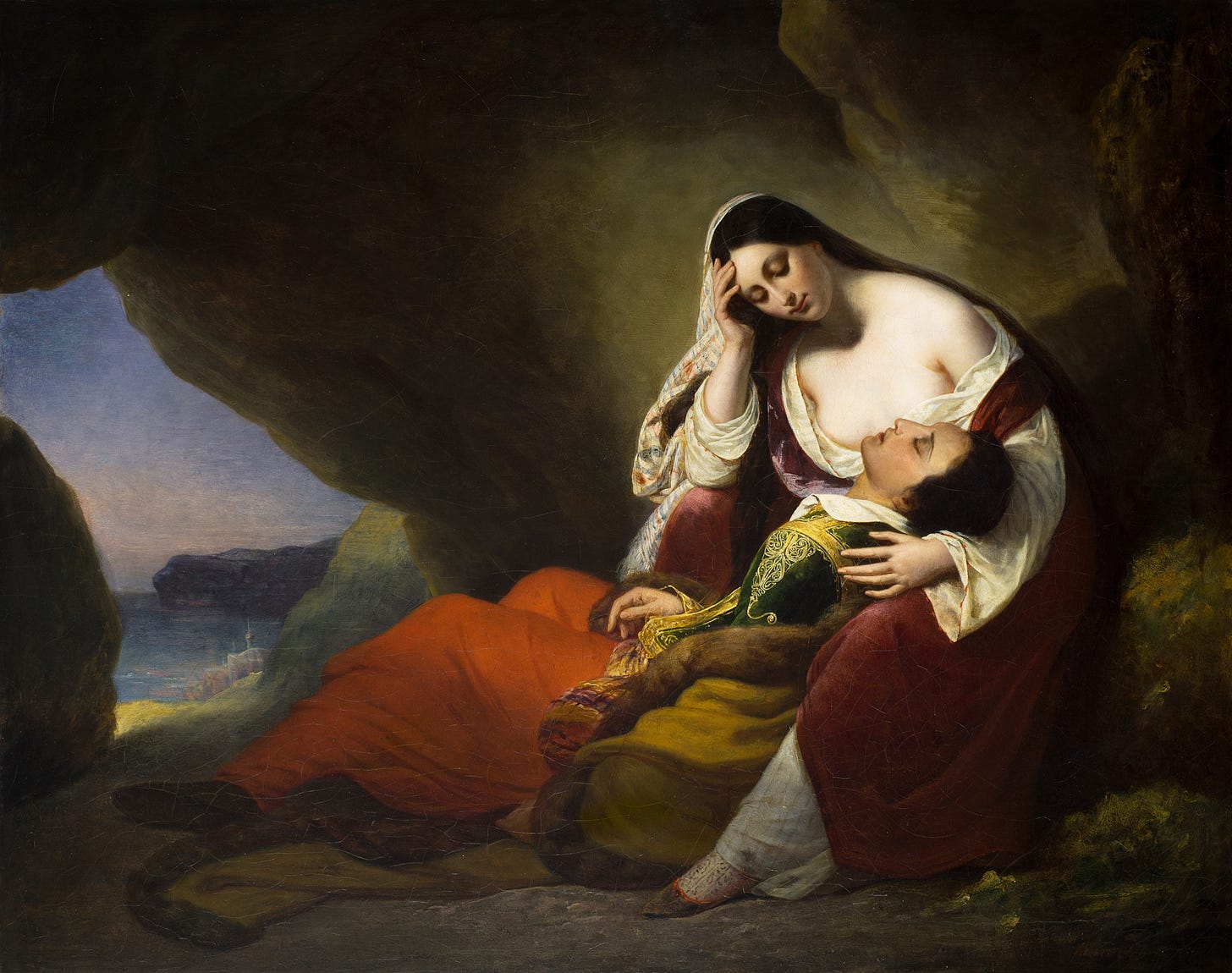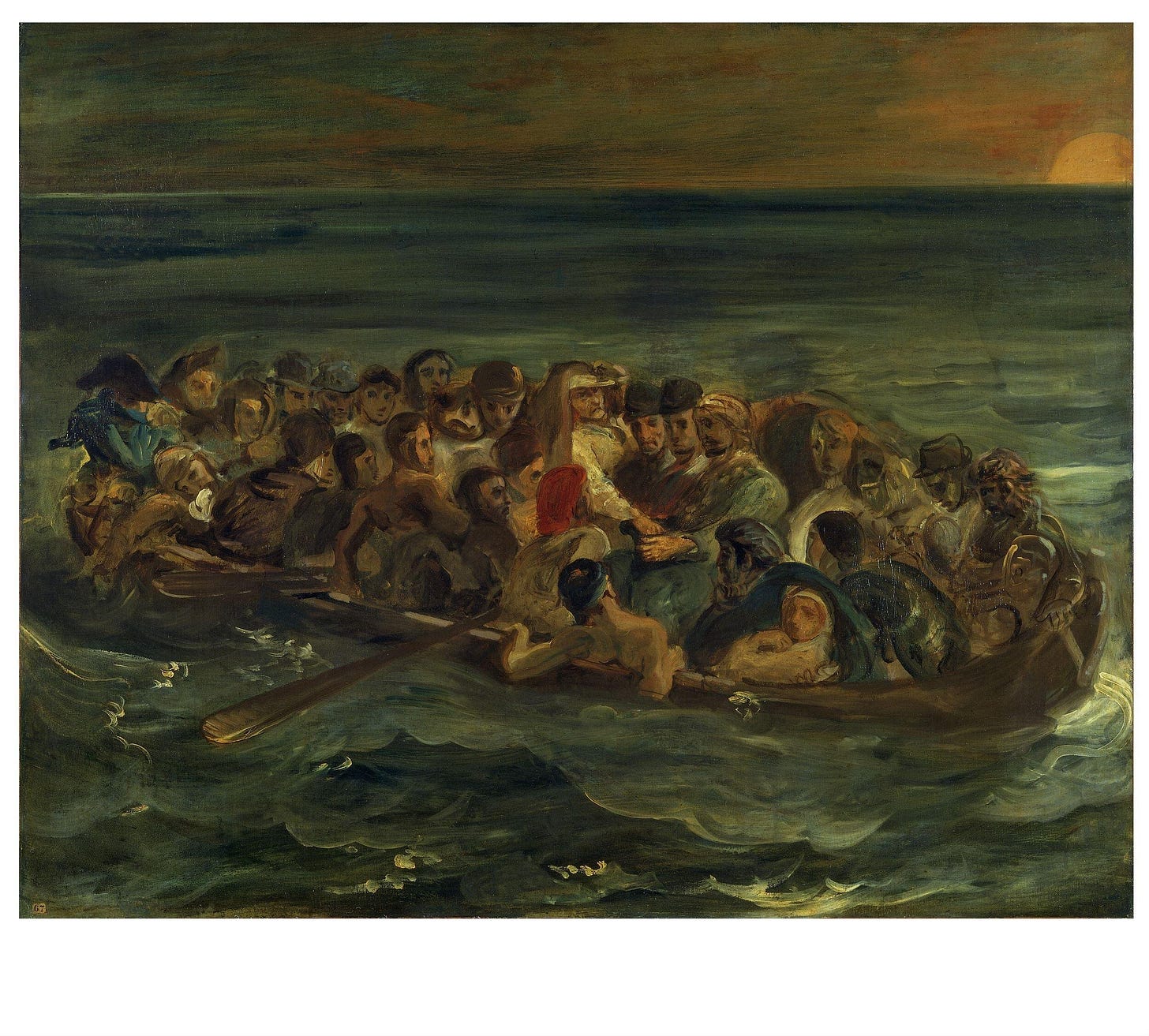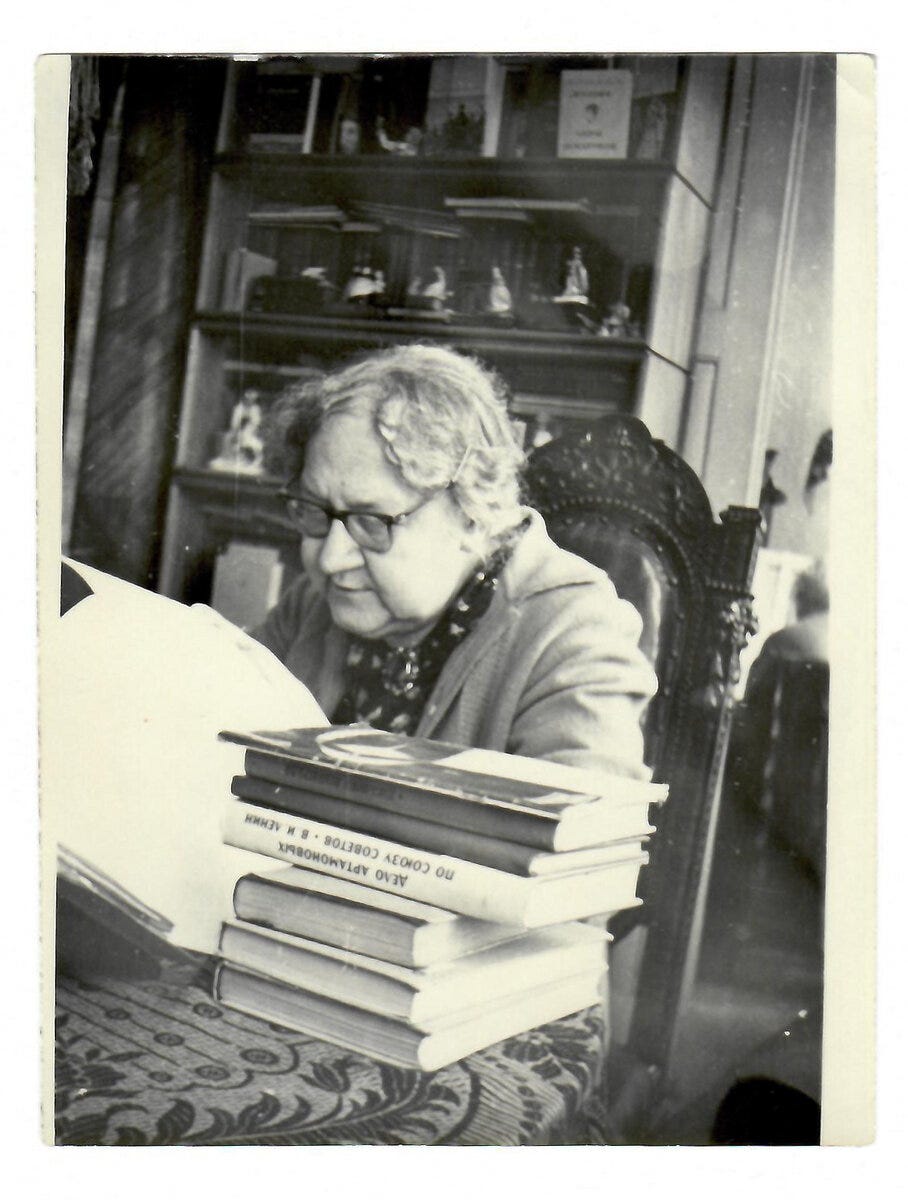The Unbreakable Power of the Spirit: Translating Byron in the Soviet Prison.
Tatiana Gnedich memorised all 16,000 lines of Byron's Don Juan by heart. Those lines rescued her heart when the Soviets put her in prison.

Hello dear reader,
I’ve got a small challenge for you. I want you to guess which film this short dialogue is from (I’m confident you’ve seen it):
‘Hey, look who is here. Maestro!’ - says one of the inmates - ‘Was it worth it? Two weeks in the hole [solitary confinement]’
‘Easiest time I’ve ever did’ - replies the other prisoner whilst taking his seat in the canteen.
‘Bullsh*t. There’s not such thing as easy time in the hole. One week feels like a whole year.’
‘I had Mr. Mozart to keep me company’
‘So they let you tote that record player down there, huh?’
‘No. It was in here and in here.’ - he first points at his head and then at his heart - ‘ That’s the beauty of music. They can’t get it from you’
Yes, you’ve guessed it right, my dear reader. This dialogue comes from The Shawshank Redemption (1994). The main protagonist, Andy Dufresne, gets himself into solitary confinement for two weeks by putting an opera on the speakers of his prison.
Two weeks in solitary confinement is torture for someone whose mind is empty and whose soul is shallow. A person like this has nowhere to retreat and nothing to protect them in pressure situations like this.
For someone like Andy Dufresne, whose mind is rich and whose soul is bright, solitude is a gift. A person who is content with his own company is invincible.
The story of Andy Dufresne is fiction, whilst the equally exceptional story of Tatiana Gnedich wasn’t.
Tatiana came from an aristocratic Gnedich family. Her great-grandfather was a prominent scholar who was the first to translate Homer’s Iliad into Russian. Everything changed for this family, as it did for many Russian nobles, after the October Revolution. They’ve lost their wealth and their possessions, but there’s one thing that communists couldn’t take away from them. That was their attitude to life.
Tatiana followed the footsteps of her great-grandfather and became a translator herself in the 1930s. During the Nazi siege of Saint Petersburg (then Leningrad), she served as a military translator until in 1944, she was put into prison under false accusations of treason.
The characters from the Shawshank Redemption were scared of spending two weeks in solitary confinement, Tatiana Gnedich spent 1.5 years ‘in the hole’ (or, 79 weeks!). A shallow, soulless, and simple person would have been broken by such torture. Tatiana, however, was neither shallow, nor soulless, nor a simple individual.
During those dark days in solitary confinement, she translated Lord Byron’s magnificent poem Don Juan from English into Russian. Those who were accused of treason were not allowed to have any books in their cells, but Tatiana didn’t need them anyway. She knew Byron’s Don Juan by heart. All 16,000 lines!
The light she carried in her heart sparked a light in the heart of one of the prison guards, who supplied her with pencils and paper throughout her imprisonment.
Funnily enough, before the war started, Tatiana used to complain to her colleagues that she had no time to do what she actually wanted to - that was to create a perfect translation of Don Juan. When on the 8th month of her imprisonment she finally got a cellmate, Tatiana got furious, telling to prison staff: “Why the hell did you put this woman in my cell?’ when the prison guard replied: ‘But, Tatiana Grigoryevna nobody can survive such a long time in the solitary confinement!’ Tatiana angrily shouted back: ‘Byron and I are perfectly happy together in this room! We don’t need anyone else.’ (The cellmate was removed, leaving her alone with Byron, her favourite Englishman)
Tatiana’s story isn’t heartbreaking, because she was unbreakable. People like her live in a separate dimension from us and, whilst we, mere mortals, need air to breathe and survive, people like her breathe a different kind of air - they breathe the air of beauty.
In 1956, Nikita Khrushchev started what many call the “de-Stalinisation” of the USSR. This involved the release of political prisoners, including Tatiana Gnedich, who was acquitted 11 years after she was sent to prison. Her brilliant translation of Don Juan was published in 1959 and is still considered to be a classic. As it often is with genius, she didn’t stop there, she continued with translations of other great minds such as Shakespeare, Corneille, Walter Scott, and others.
She inspired a generation of Russian poets, who used to call themselves ‘Leningrad Underground'. A modern poet Yulia Voznesenskaya wrote once that Gnedich is her sole inspiration.
Nobody knows how many people perished in the Soviet prisons due to false accusations; only God knows how many disappeared in the 20th century’s concentration camps; who knows how many innocent souls are trapped in prisons today? What we know for certain is that people like Gnedich, Solzhenitsyn, or Frankl - survived because of what Russians call ‘Nepobedimaya sila duha’ (Непобедимая сила духа) unconquerable power of the spirit.
Confide tibimet.
Do you want to keep a journal?
I’ve been journaling for the past 15 years of my life. By saying this I mean that for the past decade and a half, I’ve been sitting down, consistently, every day, and writing my thoughts and ideas into my notebook.
If you would like to begin your journaling journey, but don’t know where to start, how to stay consistent, or which type of journaling suits you, consider subscribing to my Patreon page.
I’ve made several ‘Guided journaling’ videos, where we sit down and journal together, I give journaling tips based on science, and I share some very personal pieces of advice based on my own journey.










I really liked the reference to Andy’s solitary confinement in Shawshank and its precursor Tatiana Gnedich’s Russian confinement. I have seen the movie several times but I paid more attention to the act of defiance by playing the music. Somehow, the chow hall scene escaped me. Thanks. I will pay more attention to it on my next viewing.
Now they both remind me of the ending scene in the movie Fahrenheit 451 with the memorizers walking around speaking their books. As long as we remember, truth cannot be expunged.